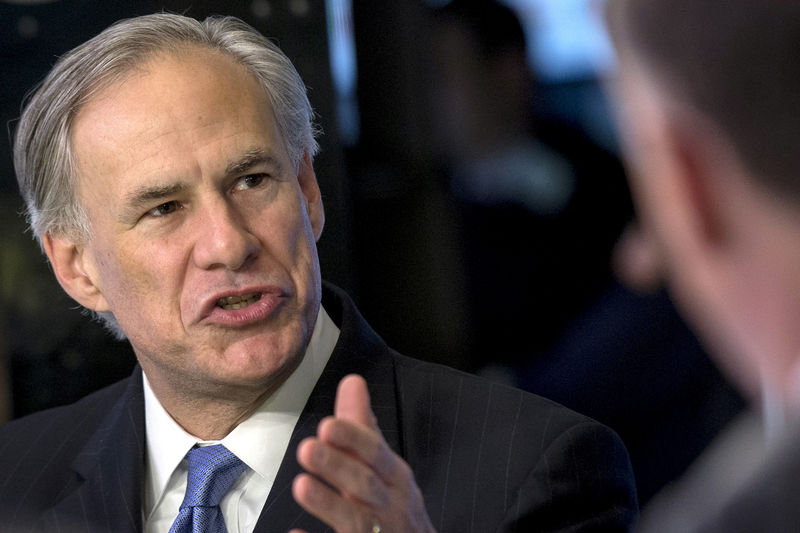By Jon Herskovitz
AUSTIN, Texas (Reuters) - The Republican governor of Texas on Tuesday called for a special state legislative session that could allow lawmakers to adopt a bill to restrict access to bathrooms for transgender people, viewed by critics as discriminatory and economically damaging.
Governor Greg Abbott, who sets the agenda for special sessions, told a news conference the session would begin in July and the first item of business would be approving a bill that keeps some state agencies open.
If approved by the Senate, he then would allow for consideration of nearly 20 other items, including a bathroom bill.
"At a minimum we need a law that protects the privacy of our children in our public schools," Abbott said.
Political and business analysts said passage of such a bill would put Texas, the most powerful Republican-controlled state, in the spotlight on an issue that has been a flashpoint in U.S. culture wars.
The issue has opened divisions in the Republican party, which dominates Texas politics, pitting the pro-business establishment wing against the powerful socially conservative wing, which says a bathroom law is a common-sense measure needed to protect privacy.
A similar law in North Carolina, partially repealed in March, prompted the relocation of sporting events and economic boycotts that were estimated to have cost the state hundreds of millions of dollars.
The stakes are far higher in Texas, which has an economy larger than Russia's.
The Texas Legislature meets every other year. In March, the Senate passed a bill backed by social conservative Republican Lieutenant Governor Dan Patrick that would require people to use restrooms in public schools and buildings that correspond with the gender on their birth certificate, not the gender with which they identify.
The Texas Association of Business, the state's largest employer group, called the legislation, known as Senate Bill 6, discriminatory, and said it would hurt businesses trying to attract talent. It said the state could lose about $5.6 billion through 2026 if enacted.
SB 6 died in the House when the regular session ended in late May. Republican Speaker Joe Straus, seen as representing the party's business wing, has said the legislation was unnecessary and could cause economic damage.
If a tough bathroom bill is enacted, Straus' San Antonio constituency could lose its rights to host the men's NCAA Final Four basketball championship next year, an event expected to bring in more than $200 million in revenue.
